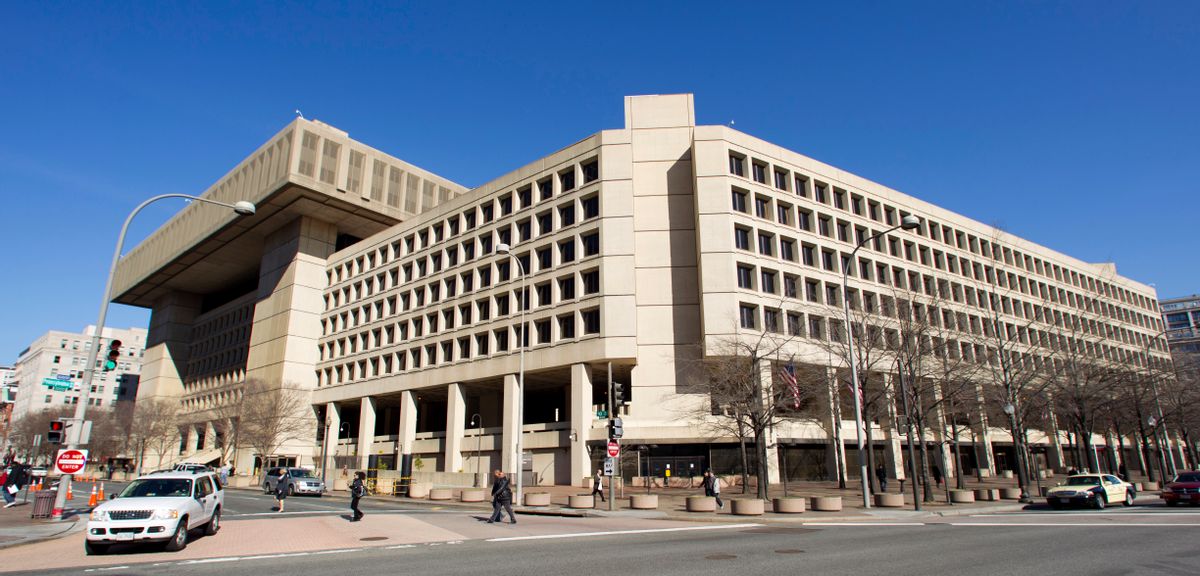A terrorist sympathizer, a college dropout who idolized both American terrorist Timothy McVeigh and Islamic jihadists while learning the hard way how to build bombs, likely faces a lengthy prison sentence after confessing to two terrorism-related crimes.
Joseph Jeffrey Brice, 22, who nearly died when one of his eight-pound homemade bombs exploded in April 2010, pleaded guilty Tuesday in U.S. District Court in Spokane to illegally making the device and later providing bomb-making instructions online to potential foreign terrorists.
The latter charge of providing material support to terrorists reached the attention of senior Justice Department officials because of its national security implications, according to U.S. Attorney Michael Ormsby, who declined further comment on the case.
Brice faces up to 15 years in prison when he’s sentenced on Jan. 9 by U.S. District Judge Lonny Suko.
Brice used the Internet to help foreign terrorists learn bomb-making techniques, knowing that such training would lead to the use, attempted use or threatened use of a weapon of mass destruction, Assistant U.S. Attorney Russell Smoot said in court filings.
The prosecutor described Brice as an intelligent young man with an “insatiable interest” in building and blowing up bombs, who used social media for discussions about using improvised explosive devices to bomb the U.S. Courthouse in Spokane or as diversions for bank robberies.
Brice also posted six YouTube “Strength of Allah” videos in 2010 and 2011, using an Al Qaeda in Iraq logo and “glorifying Jihad and the use of explosives,” and even continued those discussions after being contacted by FBI agents, the documents say.
All that came after Brice, who graduated from high school in Clarkston, Wash., nearly died on April 18, 2010, when the “apan” (acetone peroxide ammonium nitrate) bomb he built prematurely exploded when he lit the fuse and didn’t run away fast enough in eastern Washington’s rural Whitman County.
That occurred one day before the anniversary of the antigovernment terrorist act carried out by his role model, Timothy McVeigh, who murdered 168 people with a truck bomb he detonated outside the Murrah Building in Oklahoma City on April 19, 1995.
The court documents say Brice not only emulated and claimed that he looked like McVeigh but also shared his antigovernment views and downloaded "The Turner Diaries," a novel by William Pierce that was a blueprint for the Oklahoma City bombing.
Then, the court documents say, Brice ordered one of his bomb-making components – tannerite – on the Internet. The chemical is unregulated and can be legally possessed as a shock-sensitive explosive detonated with firearms.
Brice used it to make a bomb that exploded with such force that it blew off his shirt and pants, broke bones, severely damaged and burned his legs, and left him unconscious for 12 days in a Seattle burn hospital. His girlfriend watched in amazement, uninjured, but wasn’t initially truthful with investigators, the documents say.
When Brice recovered four months later, a Whitman County sheriff’s deputy who investigated the blast decided not to recommend the filing of state charges because he believed, after a phone interview, that the young man “had learned his lesson the hard way.” Agents with the Bureau of Alcohol, Tobacco, Firearms & Explosives also initially concluded the explosion was caused by a malfunction with tannerite, even though Brice didn’t have a firearm with him to ignite the explosive, the court documents say.
However, the FBI’s Inland Northwest Joint Terrorism Task Force had received tips about Brice’s interest in bomb-building and those leads were actively pursued after, in an unrelated incident, an unexploded backpack bomb was found on Jan. 17, 2011, in Spokane along the route of a Martin Luther King Jr. Day parade.
The documents say Brice was ruled out as a suspect in the MLK bomb and had no known connection with Kevin W. Harpham, a neo-Nazi who ultimately confessed to building and planting that device. Harpham was sentenced to 37 years in prison.
Meanwhile, the FBI’s interest in Brice heightened when agents learned that the explosion that nearly killed him didn’t end his interest and promotion of bomb-building techniques. “Since his near-fatal incident,” court documents say, “Brice, a self-declared, conservative, right-wing Christian, appeared to undergo a rapid radicalization to Islam.”
As the investigation progressed, FBI agents reviewed Brice’s online activity and telephone records. He was arrested on May 9, 2011.
The investigation turned up thousands of documents, including videos – some encrypted – of everything from a “Times Square Bomb Test” to Chechen extremists destroying Russian military equipment to the 9/11 attack on the Twin Towers when Brice was 11.
When Brice was questioned by a terrorism task force agent in March 2011, two months after the Spokane bomb was discovered and safely defused, he confessed to building the destructive device that caused his injuries the previous year. The court documents also say he bragged about “his own expertise in explosives, destructive devices, weapons of mass destruction” and suicide bombs.
Even after being questioned by FBI agents and finding a GPS-tracking device that apparently had been secretly placed on his vehicle, Brice continued posting pro-jihad, anti-Western comments on public and private websites.
In early May 2011, using the screen name Yusuf90, Brice met a fellow jihadist named “Abu Harith” on the password-protected Deen Al Haq website. That introduction led to E-mail exchanges, and eventually Brice sent along detailed instructions for “open source” bomb-making, the documents say.
When he was arrested, Brice confessed to his involvement during a four-hour interview in which he learned that Abu Harith really was an undercover FBI agent.
Still, the documents say, Brice tried to laugh it all off: “It’s going to look like I’m a fucking Muslim terrorist, but I was just fucking with these guys. I was just toying with them. I drink beer, I drink beer every day. I do. I do everything opposite of whatever it looks like. I was just fucking with them. There’s a guy, this is going to look so bad!”




Shares